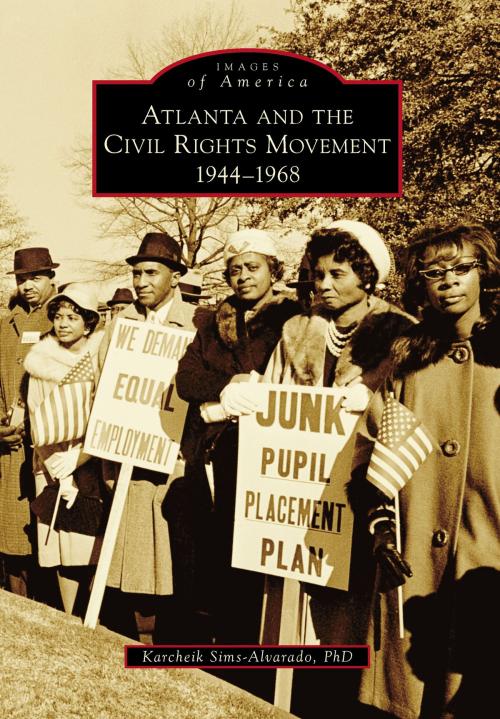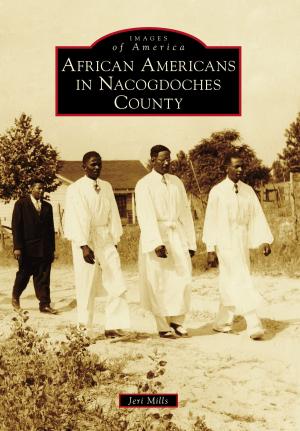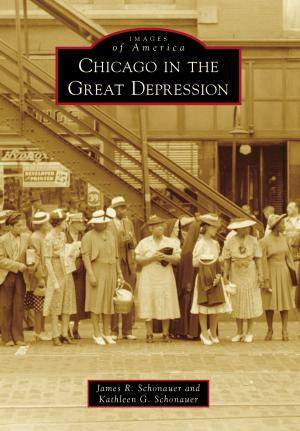Atlanta and the Civil Rights Movement
1944-1968
Nonfiction, Art & Architecture, Photography, Pictorials, History, Social & Cultural Studies, Political Science, Politics, Civil Rights, Fiction & Literature, Literary Theory & Criticism| Author: | Karcheik Sims-Alvarado, PhD | ISBN: | 9781439659403 |
| Publisher: | Arcadia Publishing Inc. | Publication: | February 13, 2017 |
| Imprint: | Arcadia Publishing | Language: | English |
| Author: | Karcheik Sims-Alvarado, PhD |
| ISBN: | 9781439659403 |
| Publisher: | Arcadia Publishing Inc. |
| Publication: | February 13, 2017 |
| Imprint: | Arcadia Publishing |
| Language: | English |
Since Reconstruction, African Americans have served as key protagonists in the rich and expansive narrative of American social protest. Their collective efforts challenged and redefined the meaning of freedom as a social contract in America. During the first half of the 20th century, a progressive group of black business, civic, and religious leaders from Atlanta, Georgia, challenged the status quo by employing a method of incremental gradualism to improve the social and political conditions existent within the city. By the mid-20th century, a younger generation of activists emerged, seeking a more direct and radical approach towards exercising their rights as full citizens. A culmination of the death of Emmett Till and the Brown decision fostered this paradigm shift by bringing attention to the safety and educational concerns specific to African American youth. Deploying direct-action tactics and invoking the language of civil and human rights, the energy and zest of this generation of activists pushed the modern civil rights movement into a new chapter where young men and women became the voice of social unrest.
Since Reconstruction, African Americans have served as key protagonists in the rich and expansive narrative of American social protest. Their collective efforts challenged and redefined the meaning of freedom as a social contract in America. During the first half of the 20th century, a progressive group of black business, civic, and religious leaders from Atlanta, Georgia, challenged the status quo by employing a method of incremental gradualism to improve the social and political conditions existent within the city. By the mid-20th century, a younger generation of activists emerged, seeking a more direct and radical approach towards exercising their rights as full citizens. A culmination of the death of Emmett Till and the Brown decision fostered this paradigm shift by bringing attention to the safety and educational concerns specific to African American youth. Deploying direct-action tactics and invoking the language of civil and human rights, the energy and zest of this generation of activists pushed the modern civil rights movement into a new chapter where young men and women became the voice of social unrest.















